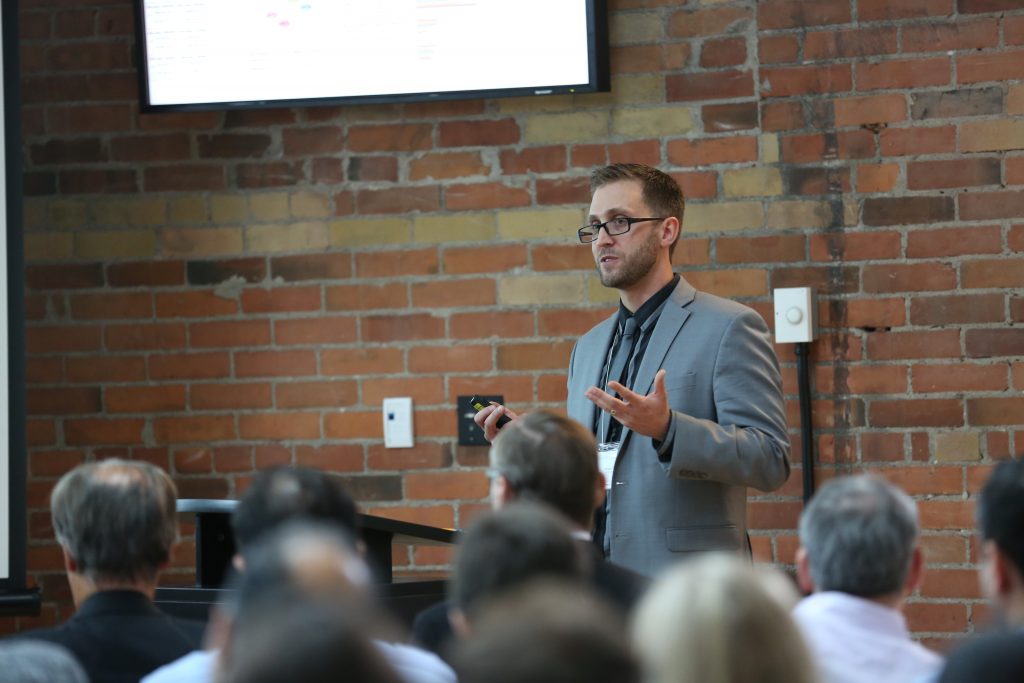Prestigious award is the ultimate prize in rock mechanics for young researchers, putting two graduates and one faculty member on the map
Bryan Tatone (CivE PhD 1T4) has been named the 2017 recipient of the international Rocha Medal, the most prestigious award a student can receive for rock mechanics research.

Tatone is the second student of Professor Giovanni Grasselli (CivE) to win the Rocha Medal in as many years. Grasselli, who holds the NSERC - Energi Sumlation Industrial Research Chair in Fundamental Rock Physics and Rock Mechanics, won the prestigious honour just 12 years ago.
The prize is awarded each year by the International Society for Rock Mechanics (ISRM) to one doctoral student with an outstanding thesis.
“Rock mechanics is the study of how rocks respond when we engineer them, and it has a lot to do with how rock deforms and fractures” explains Grasselli. “This is especially important for building tunnels, assessing the stability of rock slopes, laying foundations on rock, and assessing reservoir behaviour for the petroleum industry.”
For Grasselli, the awards are recognition of the quality of his group’s work over the past 10 years, and global research excellence in the field of rock mechanics at U of T Engineering.
Tatone’s thesis on the behaviour of shearing rock fractures — lateral movements of rocks against each other underground — is important to projects with geological components. Tatone’s work represents a breakthrough in geological imaging — it is the first instance of micro X-Ray Computed Tomography (µCT) being used to study shearing evolution. It also features the use of a novel numerical modelling approach called the Finite-Discrete Element method (FDEM), which allows the process of rock fracturing to be explicitly simulated.
“Having my work recognized by the international selection committee is a welcome validation of my research efforts, and an immense honour,” said Tatone.
Andrea Lisjak Bradley (CivE PhD 1T3), another of Grasselli’s PhD students, won the award in 2015 for his research on the underground disposal of radioactive waste. It is the first time in Rocha Medal history that two students of a previous recipient also won the award.
Lisjak’s research has helped the current site-selection and design process for an underground radioactive waste repository in Switzerland. His numerical model of shale behaviour can be applied to several issues including stability of surface and underground excavations.
For Lisjak, his experiences during his PhD have been crucial in succeeding in his role with Geomechanica, a start-up company spun out of the research performed by Lisjak, Tatone and their peers. The company develops geomechanical simulation software and provides consulting and laboratory testing services for rock engineering operations, using algorithms and numerical procedures to better simulate the mechanics happening underground before project begin.
“The technical expertise and extensive knowledge I gained during the course of my PhD, as well as developing a professional network in part due to the Rocha Medal, has resulted in greater business development and several consulting opportunities for Geomechanica,” he said.
“When we first started this research, we did not have any guarantee that it would work,” said Grasselli. “The start-up company and the number of published papers that have come out on this topic since we started the research prove how innovative it is.”